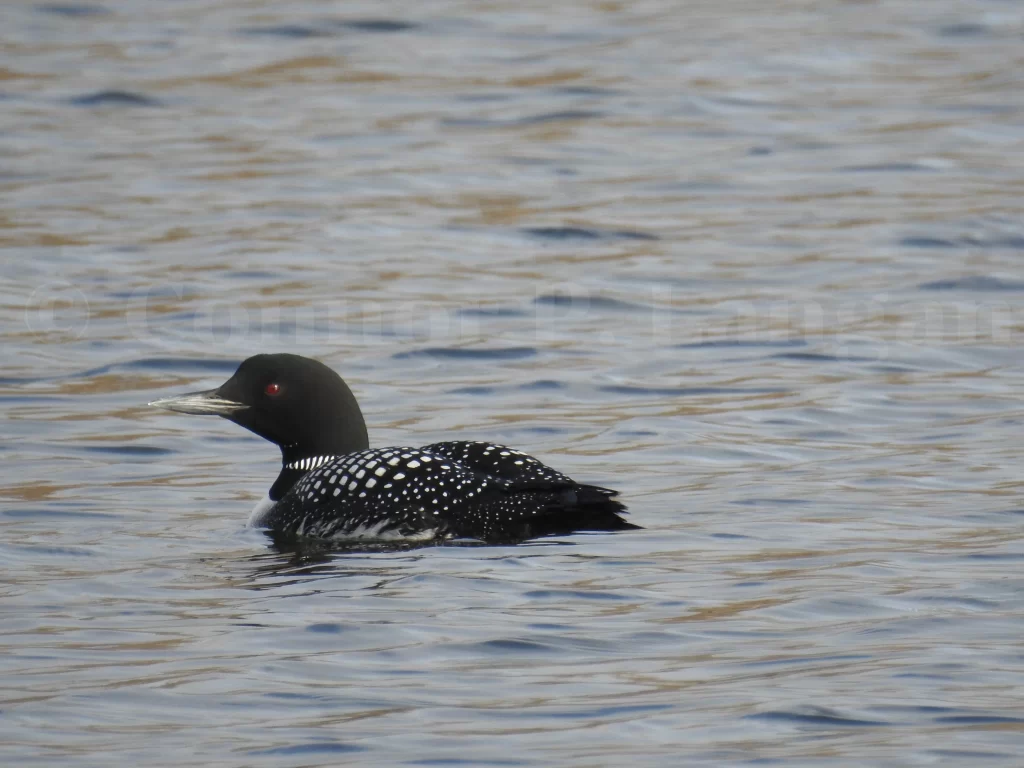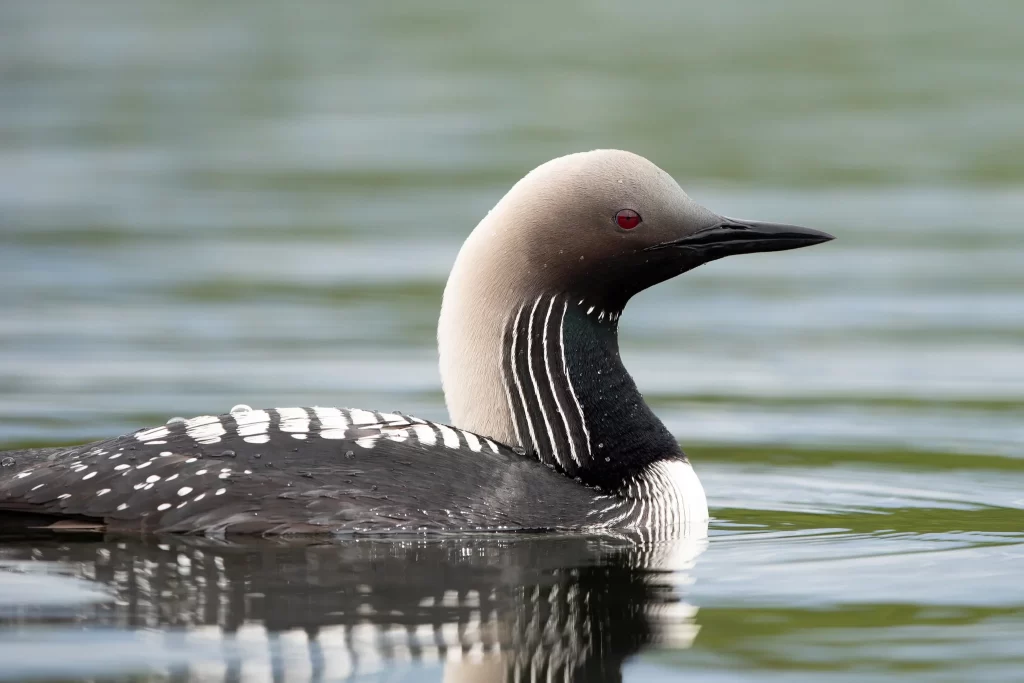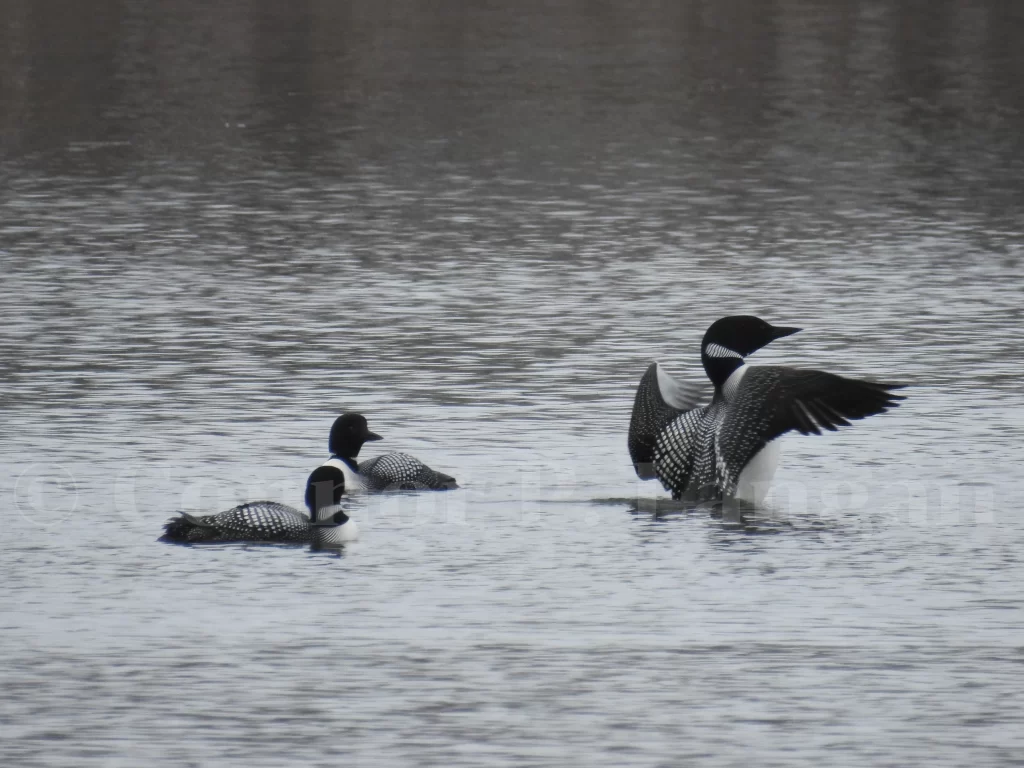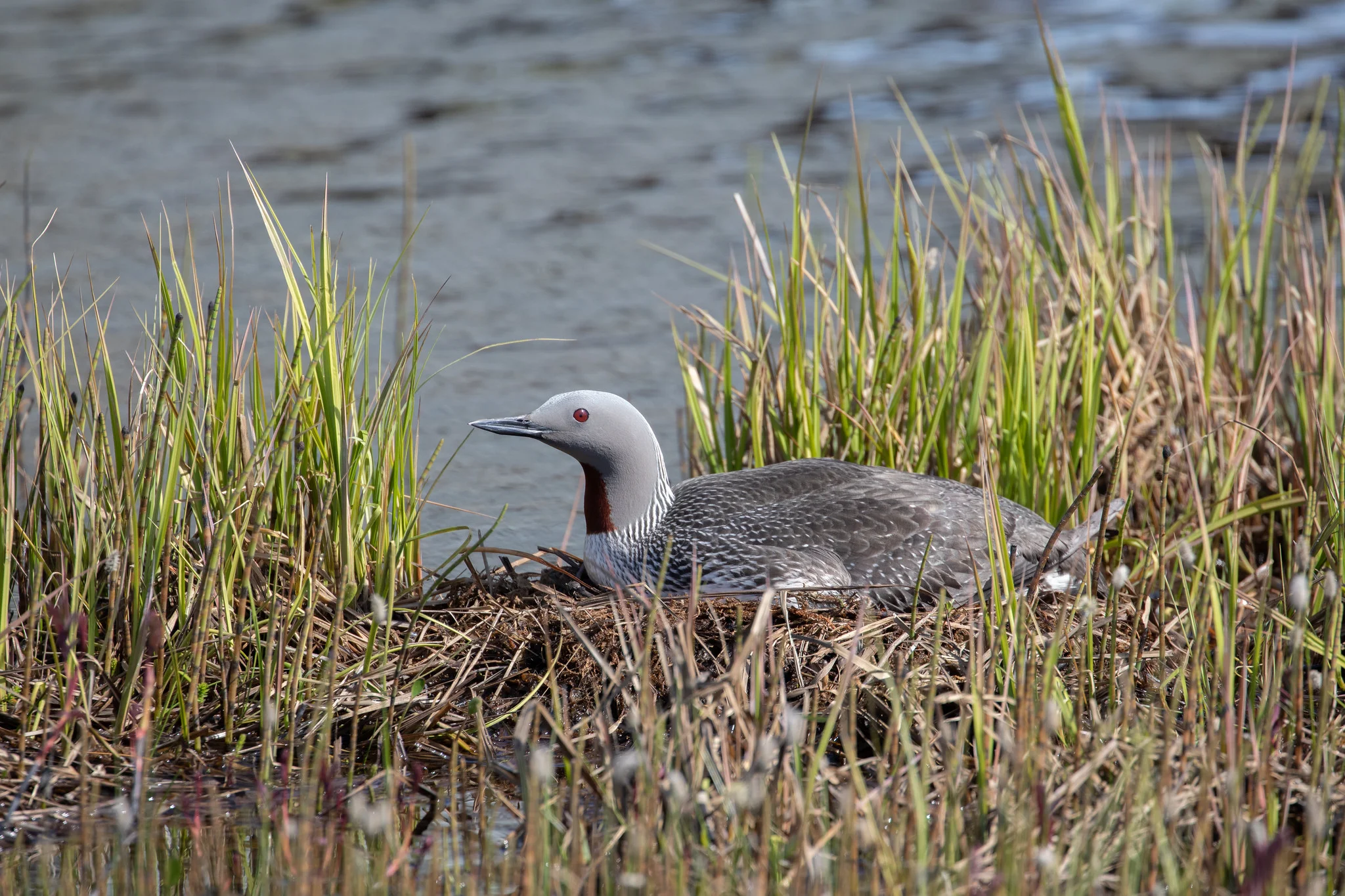Loons—otherwise known as “divers” in British English—are charismatic creatures that are enjoyed by birders and nonbirders alike. Although they are quite graceful in the water, loons are notoriously clumsy on land. In fact, this awkwardness on land is how they earned their names.
Loons are a family that has evolved to have little need to go onto land. Indeed, they’re able to feed, sleep, and perform almost any activity imaginable on the water. Nonetheless, there are instances in which loons will have to venture onto land. For instance, can a loon walk on land to nest or evade predators? It’s time to settle this – can loons walk on land?
No, loons cannot walk on land! These birds are so highly evolved for life in the water that they’ve lost their ability to walk, leaving the 5 types of loons with no good way of getting around on land. The best a loon can do to move around on land is to plop its body on land and scoot forward on its stomach by propelling itself with its feet.
Table of Contents
Why Can’t Loons Walk On Land?
Many of you may be surprised to know that loons can’t walk on land, as this is something that almost any bird is capable of doing. So, why are loons any different than other bird species – why can’t loons walk on land?

Well, loons can’t walk on land because their feet are set so far back on their bodies. Indeed, anyone who has seen a loon specimen in a museum will know that their feet are not in an advantageous position for walking, as they are at the very rear of a loon’s underside by their tails.
Loons are so clumsy on land that some ask, “Do loons have feet at all?”. While loons unquestionably have feet, these appendages do little to help them move around on land. It may seem like a loon’s feet are in a useless position, as they make it impossible for them to walk. Although walking is out of the question for loons, their feet are in a great position for swimming, as they propel loons through the water with ease.
Where Do Loons Nest?
Although a loon walking on land is not a sight that anyone will get to witness, loons have to nest on land just like any other bird. You may be curious about how they do this, as it would seem that loons would be quite incapable of building a nest on land. So, where do loons nest?
Unsurprisingly, loons build their nests as close to shore as possible, as they would have a difficult time getting very far using the scooting method that they must employ to move on dry land. Therefore, a pair of loon mates will select a nesting location very close to shore – often being positioned along the water’s edge.

Indeed, loons may drag themselves out of the water and begin constructing a nest made from grasses and other plant material. Given the precarious placement along the water, loons build tall nests that often extend a couple of feet into the air – this keeps most nests safe from changing water levels.
In addition to using the shores of lakes, loons may use islands or floating nest platforms that are constructed by humans. Nesting in such locations give them increased protection from predators.
The nesting season is about the only time that anyone could have the privilege of spotting a loon on land.
Are Loons Ducks?
Some are curious about the relationship between loons and ducks. After all, both birds love spending time in water, and loons look rather similar to ducks. So, are loons ducks?
No, loons are not ducks! Although loons may look superficially similar to ducks, loons belong to their own family of birds, and there are many differences between loons and ducks:
- Can ducks walk on land? Yes
- Can loons walk on land? No
Of course, there are plenty of other differences between loons and ducks, but know that—although similar—loons and ducks are distinct bird families.
What Do Loons Eat?
No one will be surprised to know that loons won’t be chasing down any food on land. Considering their aquatic lifestyles, what do loons eat?
Loons eat things that you would expect from a bird that spends the vast majority of its life in the water. Fish, frogs, crayfish, salamanders, and other small organisms are on the menu for loons. To capture this food, they dive underwater and use their feet to propel themselves after these organisms.

How Long Can Loons Stay Under Water?
Now, as mentioned in this article, loons are very capable in the water. In fact, their abilities in the water are quite opposite to their abilities on land, showing speed, manueverability, and grace. There’s no question that loons are skillful in the water, but how long can loons stay under water?
Well, loons are rather impressive in their abilities to remain underwater, as they can hold their breath for up to five minutes. This gives them plenty of time to pursue fish and other aquatic creatures. Moreover, this ability can help them to dive underwater and travel far away if threatened by a predator.
How Deep Can Loons Dive?
Now that you know that loons may stay underwater for up to five minutes, this may raise some other questions. For instance, how deep can loons dive?
Incredibly, studies suggest that loons can dive nearly 200 feet below the water’s surface. Of course, this is not possible in many of the shallow lakes in which they breed, but some have reported birds diving to such depths in the Great Lakes or oceans.
Do Loons Fly?
Given that loons are so evolved to life in the water, have they lost their ability to fly much like penguins have? Do loons fly?
Yes, loons do fly! Although they are quite clumsy on land, they have not yet lost to ability to take to the skies. In fact, flight is essential for all loon species, as each of the five loons is migratory.

Therefore, loons rely on their ability to fly to get them to and from their breeding grounds annually. One may not expect a loon to be a very good flyer, but they are surprisingly strong flyers with powerful wing beats. Loons have to constantly flap their wings, as they cannot glide through the air. However, their wings are more than capable of getting them where they need to go.
Can Loons Take Off From Land?
Okay, we know that the answer to, “Can loons walk on land?” is no, but what happens if a loon needs to take flight when they’re on land? Can loons take off from land?
No, loons cannot take off from land! In fact, they cannot take off directly from land or the water’s surface like many ducks. Instead, they have to build momentum and get a running start on water. Much like an airplane needs a runway for takeoff, so too do loons need water to take flight.
Fortunately for loons, they are almost always in the water. Event those who are on land are never more than a few feet away from water.

